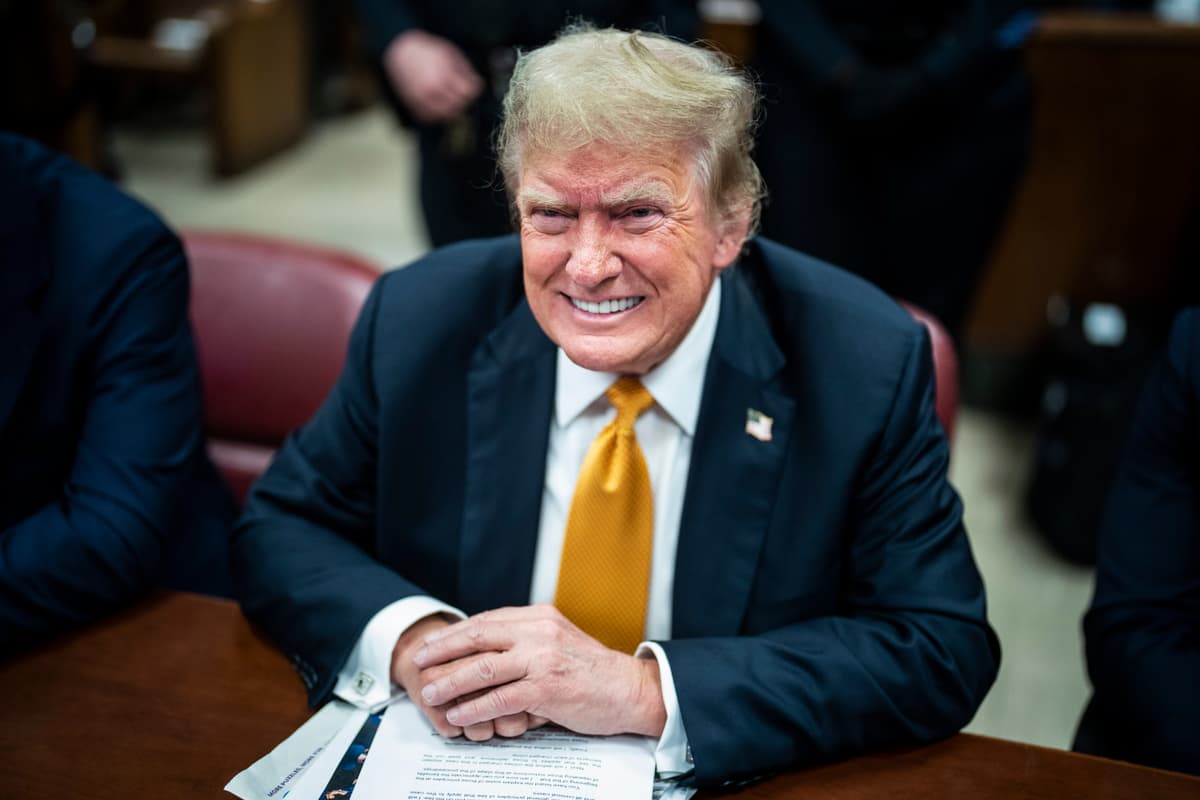Trump Vows To Appeal Hush Money Convictions From the White House, and He Could Have a Strong Case
That the president-elect is a convicted felon could be a blessing in disguise.

President-elect Trump’s sentencing at New York for his hush money convictions cements him as a convicted felon and sets the stage for an appeal mounted from the Oval Office.
Judge Juan Merchan sentenced the president-elect last week after the Supreme Court elected not to grant his appeal for intervention. Judge Merchan imposed an “unconditional discharge,” meaning that no jail time, probation, or fines are forthcoming. The soon-to-be 47th president, though, wanted the case dismissed.
The president-elect participated in the hearing virtually, and Judge Merchan wished him, in respect of his second term, “godspeed.” The president-elect took to Truth Social after the hearing to reflect: “Today’s event was a despicable charade, and now that it is over, we will appeal this Hoax, which has no merit, and restore the trust of Americans in our once great System of Justice.”
Trump also declared: “I still have confidence that the Appellate Courts will bring JUSTICE TO AMERICA!!!” One legal analyst, Elie Honig, a former prosecutor, writes that District Attorney Alvin Bragg’s “prosecution of Trump for an underlying federal campaign violation in a state court is a first in all of U.S. history. It has never been attempted by any state-level prosecutor, ever, against any candidate for any federal office, ever.”
Trump’s failure to stop his sentencing could be an appellate blessing in disguise, as a defendant can only begin his quest to overturn a criminal verdict once a sentence has been imposed. In New York, a notice of appeal can be filed within 30 days of the sentence being handed down. That will transfer jurisdiction to New York’s intermediate appellate courts, called the Appellate Division of the New York State Supreme Court.
Once the Appellate Division has the case, it will order briefings from both sides on whether the president-elect’s convictions ought to stand. The appellate judges could reckon that oral arguments are in order, or reason that assessing the arguments on paper suffices. Trump has already appealed a civil fraud verdict of nearly $400 million secured against him by Attorney General Letitia James. During oral arguments the Appellate Division appeared sympathetic to his point of view.
In the hush money criminal case, the president-elect could also choose to pursue a bolder strategy and attempt to move his petition for review to federal court. The president-elect has attempted this strategy before, and failed. Judge Alvin Hellerstein concluded that the hush money payments to an adult film actress, Stormy Daniels, whose real name is Stephanie Clifford, were private acts unrelated to the office of the president.
Trump, though, will in a week’s time be president again, and a federal court could reason that such status means that his appeal should be heard by a federal tribunal. A federal forum could be more persuaded than was Judge Merchan that presidential immunity — either sourced to his last term or his upcoming one— protects Trump from bearing state court convictions.
Trump’s strongest case on appeal, though, could relate less to where the request ought to be held than to how Judge Merchan stewarded the trial. The jurist allowed the jury to hear evidence — including the “Access Hollywood” tapes disclosed during the 2016 election — that was not limited to the charges alleged. In April, New York’s highest court, the court of appeals, overturned the rape conviction of a movie producer, Harvey Weinsetein, on account of the introduction of extraneous and possibly prejudicial testimony.
The president-elect’s strongest argument could pertain to how Judge Merchan instructed the jury that brought in the convictions against Trump. The judge told those 12 New Yorkers that they could convict Trump of a felony if they found that the falsification of business records — usually a misdemeanor in the Empire State — was undertaken in the name of a second crime, though they need not all agree on the nature of that second crime.
Judge Merchan instructed the jury that the second crime could even be a federal one relating to election interference — Trump was running for the highest federal office of all. The appellate court could reason that the vagueness of those instructions were injurious to Trump’s due process rights. That means what he was found guilty of might not be clear to the president, possibly breaching the right of a defendant to know the charges against him.
There is precedent for a state court judge dismissing charges against Trump on account of vagueness. Judge Scott McAfee of Fulton County did just that with three of the charges alleged by District Attorney Fani Willis in the sprawling racketeering case from which she was subsequently disqualified.

